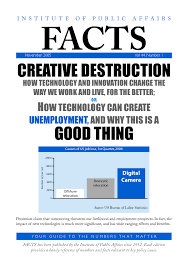Modern Creative Destruction, Banks Post Good Earnings, And De Tocqueville

The essential point to grasp is that in dealing with capitalism we are dealing with an evolutionary process. Joseph Schumpeter
Creative destruction describes the deliberate dismantling of established processes in order to make way for improved methods of production. The term is most often used to describe disruptive technologies such as the railroads or, in our own time, the Internet.
Over the course of our lives, at any particular moment, there are specific instances of creative destruction potentially taking place. Right now, the most obvious one is the question of electrification in the transportation and power markets. The transition to electrification in the automobile market hasn’t been rapid, with electric cars having a total market share in 2019 of 1% (entire market) with 2.6% of global sales. Year over year sales increased 40%, according to the IEA.
Investors believe electric and hydrogen based vehicles will displace the incumbent, internal combustion based automobiles, and do so in a short period of time. Current market prices for those segments, especially Tesla and others, reflect this idea, as do the values of traditional automotive manufacturers. Oil and gas providers and their depressed stock prices are also evidence of this thesis. The important consideration for investors is the accuracy of this prediction, will it take place, and if so, how rapidly? Given the amount of capital at stake, and the conclusions many have already drawn, creative destruction requires serious thought and analysis. Let me share a real life example and what has to be considered.
A few years ago, a high-profile startup in Silicon Valley was considered the leading contender in the health care area of diagnostic testing. The existing public companies in the diagnostic area were sold off on the thesis that the startup had superior technology. The startup had a charismatic founder, partnerships with leading pharmacies and retailers, and plenty of media attention.
Our holding is a leader in the industry, with thousands of existing laboratories and millions of tests conducted daily. The question to consider was the legitimacy of the startup. It was based on the idea a multitude of tests could be assayed off of a small amount of blood. It turned out the technology was, shall we say, not fully vetted. Our holding continues to churn out millions of tests per day and is a vital part of the health care system, holding up pretty well during the Covid-19 crisis. What can be learned from this?
First, the rush to declare victory by emerging companies with new technologies should be evaluated on the basis of relative competitive threat within that industry. Applying this to electric cars, apparently the experience is like driving an iPad. The current generation, and future ones, finds this appealing, along with the environmental benefit. Just as important is the price of these vehicles, and their competitiveness with internal combustion ones.
One must also consider the ability to create enough infrastructure for these cars, like battery recharging stations. The infrastructure component might be the biggest hurdle. The second point is the strength of incumbency in markets is a very large advantage. Generating millions or billions of dollars in cash flow, having relationships with millions of customers, and existing distribution are enormous barriers to those competitors trying to displace them.
The new technology must remake the customer experience for buyers or the existing entities probably will continue their leadership. In sum, creative destruction is an ongoing part of the investment universe and these questions will continue to show up in different areas. Duly noted.
In the market last week, the largest banks reported earnings which were dismissed by the investment community. Banks with large deposit bases, JPMorgan Chase, Bank of America, Citigroup, and Wells Fargo, face the problem of minimal net interest margins and a Federal Reserve committed to not raising rates for the foreseeable future. The investment banks, Goldman Sachs and Morgan Stanley, without deposits and an absence of loans, were helped by strength in trading and underwriting in fixed income. All have seen lower transaction advisory fees from reduced merger and acquisition activity due to the pandemic. Many see this area picking up when we get into the new year.
Elsewhere, Delta Airlines suffered a brutal quarter while VF Corp raised the dividend, as did Walgreens. Charles Schwab closed their acquisition of TD Ameritrade, and Bank of Mellon New York slightly surprised. Next week will bring a deluge of more reports, including those from Coke, Tesla, AT&T, and Netflix.

In the political world, Twitter and Facebook reminded us this week why Alex de Tocqueville was such a brilliant forecaster. Alexis traveled the country in the mid eighteen hundreds and wrote brilliantly about our fair land. In his writings, he espoused the importance of a vibrant and free press for democracy. With the details of Hunter Biden’s emails emerging from a NY Post article, Twitter and Facebook decided to shut down the story for public consumption.
The largest technology companies have clearly been biased in how they apply their publishing standards during the current political season. Their 230 exemption for liability protection should be evaluated at because of their repeatedly biased actions over the last year. De Tocqueville wrote about the importance of a free press to prevent the tyranny of the majority. In the current case of Democrats, who many believe have a chance to control the legislative and executive branch of government after the election, Facebook and Twitter have potentially helped aid the minority to become the majority. Of course, so has the vast majority of our cheer leading media. Alexis saw it coming over a century ago, and his wisdom should be strongly considered by whichever side emerges victorious from the 2020 campaign.
Disclaimer: Thanks for reading the blog this week and if you have any questions or comments, please email me at information@y-hc.com. Y H & C Investments, Yale Bock, and the family of Yale Bock ...
more


